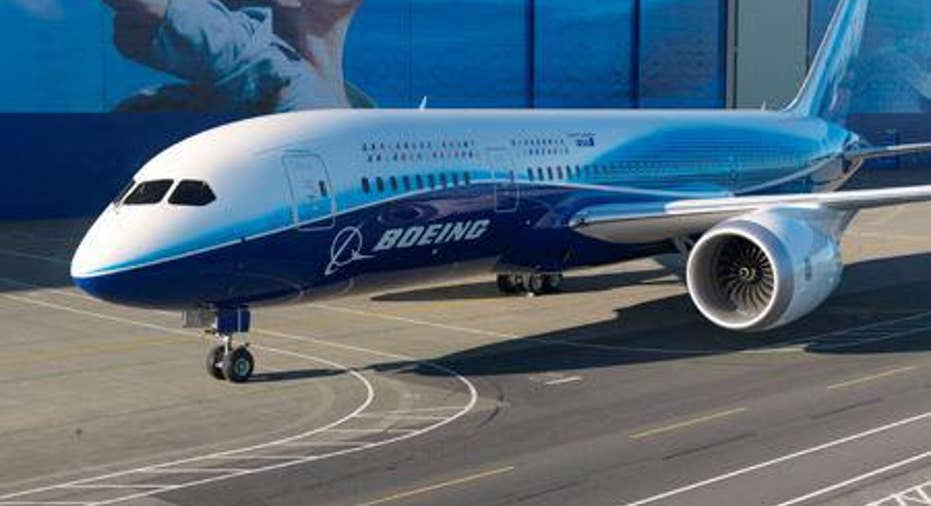Boeing Meets Its 2015 Order Target at the 11th Hour

Boeing spent much of the past year trying to convince investors that it would be able to book as many orders for new airplanes as it built during 2015.
Boeing endured slower sales of its jets in 2015 than in previous years. Image source: Boeing.
Just a month ago, its prospects for hitting this target looked rather bleak. As of early December, Boeing had secured only 568 net orders for commercial airplanes in 2015, whereas it planned to deliver 755-760 planes. Meanwhile, its rival Airbus was enjoying yet another year of strong order trends.
Boeing ultimately exceeded its production guidance for 2015, delivering 762 airplanes during the year. However, Boeing also announced on Thursday that it had booked 200 orders in the last few weeks of the year. It therefore ended 2015 with 768 net orders, giving it a "book-to-bill" ratio just above 1.0.
A slew of orders -- but not the ones Boeing needs mostAs I have previously discussed, investors spent too much time worrying about whether Boeing would achieve a book-to-bill ratio of 1.0 in 2015. The company has nearly 5,800 jets in its order backlog -- equal to more than seven years of sales at current production rates.
That said, there is wide variation in the size of the order backlogs for Boeing's various aircraft families. The firm backlog for the iconic 747 totals just 20 planes, which is causing Boeing to cut production to one per month as of March. Boeing could also be forced to reduce production of the current-generation 777 as early as next year unless the pace of new orders increases.
On the flip side, the 737, 767, and 787 aircraft families all have lengthy backlogs. Boeing has already announced production increases for all three aircraft types in the coming years to meet this demand.
Unfortunately, nearly all of the firm orders Boeing recorded last month were for the 737, which has the longest backlog of any Boeing plane. For the full year, it was the same story. Boeing 737 orders exceeded production by nearly 100 units, while orders for most of the company's widebodies (particularly the 747 and 777) fell well short of production levels.
The upside of strong 737 ordersBoeing ended 2015 with 4,392 unfilled orders for the popular 737 aircraft family. At today's production rate of 42/month, that would be enough to keep its factories busy until 2024. Boeing plans to boost the production rate to 52/month by 2018, but even so, it would take more than seven years to clear the 737 order backlog.
Airbus has an even longer backlog for its competing A320 aircraft family. As a result, Airbus announced in November that it will increase its production to a record rate of 60 per month by mid-2019.
Strong demand for the A320neo encouraged Airbus to plan for higher output. Image source: Airbus.
Ever since the Airbus announcement, investors and analysts have wondered whether Boeing would respond with its own production increase. With another year of solid orders in the books, it's more likely that the company will implement another production increase after 2018 in order to get 737s into its customers' hands sooner. (Boeing would also undoubtedly like to avoid losing market share to Airbus.)
The 737 has been a reliable cash cow for Boeing for many years, and another production increase -- if it occurs -- should provide a solid boost to the company's earnings in 2020 and beyond.
All things considered, Boeing executives would have gladly traded 100 of the company's 737 orders for half as many orders for the 777 or 747 families. Keeping those models' backlogs healthy is the most important task for Boeing in the next year or two. But increasing the 737 backlog even further -- supporting future production increases -- is still a nice consolation prize.
The article Boeing Meets Its 2015 Order Target at the 11th Hour originally appeared on Fool.com.
Adam Levine-Weinberg owns shares of The Boeing Company. The Motley Fool has no position in any of the stocks mentioned. Try any of our Foolish newsletter services free for 30 days. We Fools may not all hold the same opinions, but we all believe that considering a diverse range of insights makes us better investors. The Motley Fool has a disclosure policy.
Copyright 1995 - 2016 The Motley Fool, LLC. All rights reserved. The Motley Fool has a disclosure policy.



















